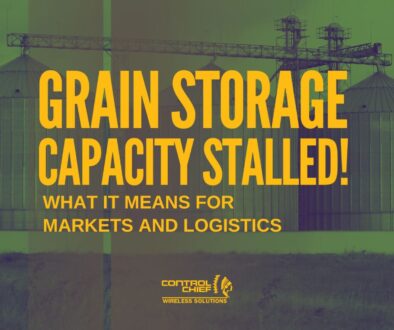Potential Strikes at U.S. Ports Could Disrupt Agricultural Exports

UPDATE: Dockworkers’ Strike Suspended: Tentative Agreement Reached Amid Port Disruptions
For the latest developments on the dockworkers’ strike and its impact on port operations, check out our recent article here detailing the tentative agreement and what it means for the grain market.
As the possibility of a dock workers’ strike looms over the U.S., concerns are growing regarding its potential impact on agricultural exports. A strike could begin as soon as October 1, when the contract between the International Longshoremen’s Association (ILA) and the United States Maritime Alliance (USMX) expires. The strike would affect ports on both the East and Gulf Coasts, potentially disrupting supply chains and agricultural shipments. According to AgWeb, the contract covers 36 key ports, including major hubs in New York, Savannah, Houston, Miami, and New Orleans.
The ILA, which represents over 25,000 dockworkers, is pushing for better wages and protections against automation in port operations. The possibility of this labor action is significant as East and Gulf Coast ports handle 41% of the nation’s containerized port volume. A shutdown could have a “devastating impact” on the U.S. economy, with agricultural exports being one of the hardest-hit sectors.
Impact on Grain Exports
However, the strike’s direct impact on bulk grain exports is expected to be limited. As AgWeb’s Jim Wiesemeyer reports, most bulk grain facilities operate under different labor agreements, meaning that key exports such as corn and soybeans are less likely to face immediate disruption. Facilities that manage these bulk shipments generally employ their own workers or partner with other labor unions not involved in the dispute.
In 2023, container shipments of soybeans through East and Gulf Coast ports totaled around 100 million bushels, compared to nearly 1 billion bushels of bulk soybean exports from the Gulf. While bulk shipments might continue, containerized exports of soybeans, soybean meal, and other agricultural products could be affected. Ports like Norfolk, New York/New Jersey, Baltimore, and Charleston handle significant amounts of containerized soybean exports that would be delayed by a strike.
Indirect Effects on U.S. Farmers
While bulk grain exports may not face significant disruption, the strike could indirectly affect grain producers through the livestock industry. Ports in the East and Gulf regions accounted for 44% of U.S. waterborne pork exports and 29% of beef exports in the first half of 2023. Any delays in shipping chilled or frozen meat products could ripple back to grain farmers, as these industries are deeply interconnected. Disruptions to the livestock supply chain could result in reduced demand for feed crops like soybeans and corn.
According to Farm Policy News, some agricultural producers may attempt to reroute their shipments to West Coast ports in the event of an East Coast strike. But this could result in congestion, particularly at major ports like Los Angeles and Long Beach, which have already seen increased volumes since the COVID-19 pandemic.
No Federal Intervention Likely
Unlike in previous labor disputes, the Biden administration has indicated that it will not invoke the Taft-Hartley Act to prevent a strike. This law has historically allowed for an 80-day “cooling off” period in labor conflicts that pose a threat to national health or safety. Instead, the administration is opting for mediation and negotiation strategies, leaving the resolution of the conflict largely up to the union and employers.
The stakes are high. In a recent statement, ILA President Harold Daggett emphasized the union’s willingness to go on strike if necessary, stating, “The ILA most definitely will hit the streets on October 1st if we don’t get the kind of contract we deserve.” As of now, both parties remain far apart in negotiations, and no formal talks are scheduled.
Energy Exports and Broader Economic Concerns
In addition to agriculture, the energy industry could also be affected by a potential strike. Gulf Coast ports play a crucial role in exporting liquefied natural gas (LNG) and other energy resources. Any disruptions could affect the flow of these products, which are essential to both domestic and international markets. Retailers are also concerned, as many rely on timely shipments and just-in-time inventory systems. Any significant delays at these ports could lead to supply chain issues, particularly with the holiday season approaching.
The Global Picture
The potential strike in the U.S. comes on the heels of labor disputes in Canada. Canadian grain workers have already gone on strike, halting operations at key export terminals. This disruption has led to major concerns for the agricultural industry, particularly in light of global food supply chain challenges.
As the deadline approaches, U.S. businesses and farmers alike are hoping for a resolution before significant disruptions take hold. For now, the agricultural industry is bracing for potential delays, increased costs, and the ongoing challenge of navigating global supply chain disruptions.
Views: 6



